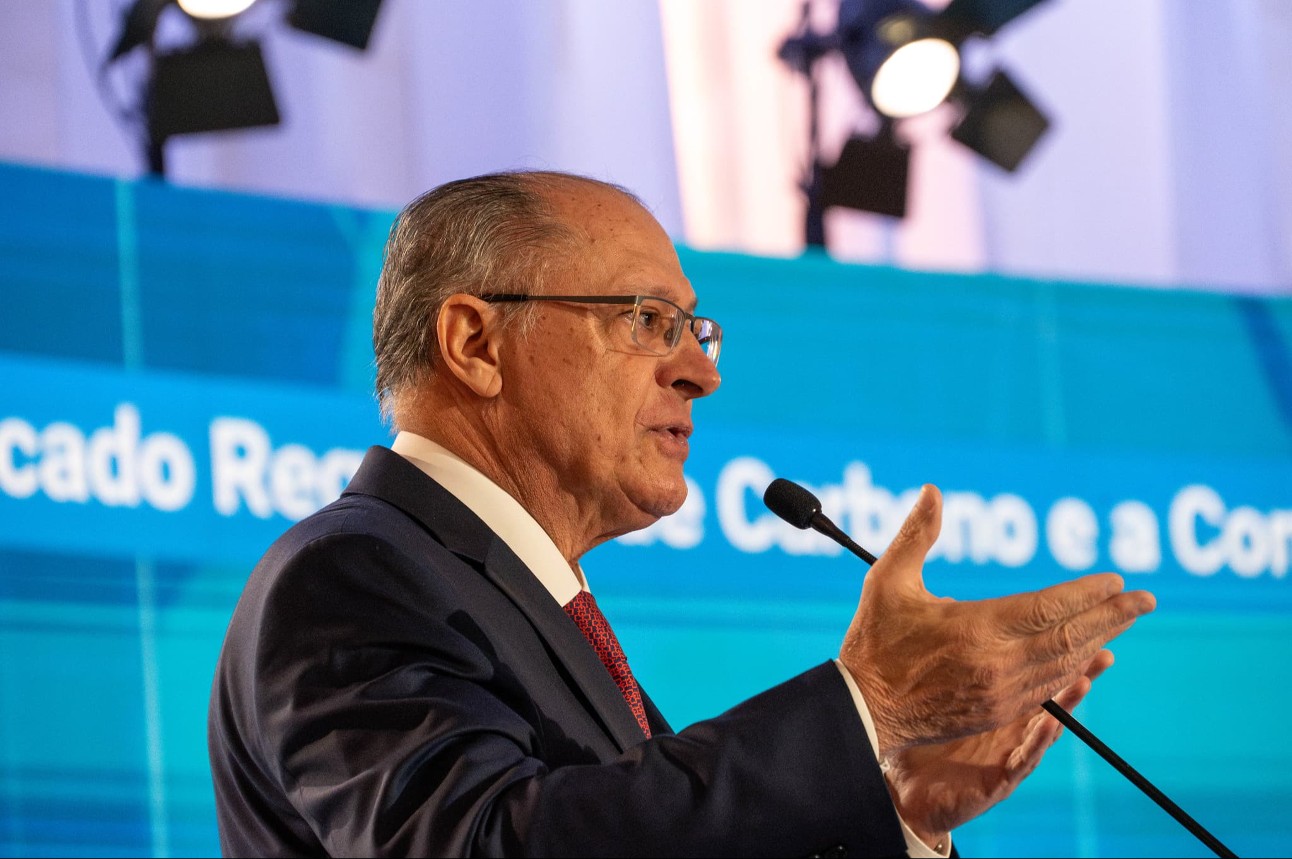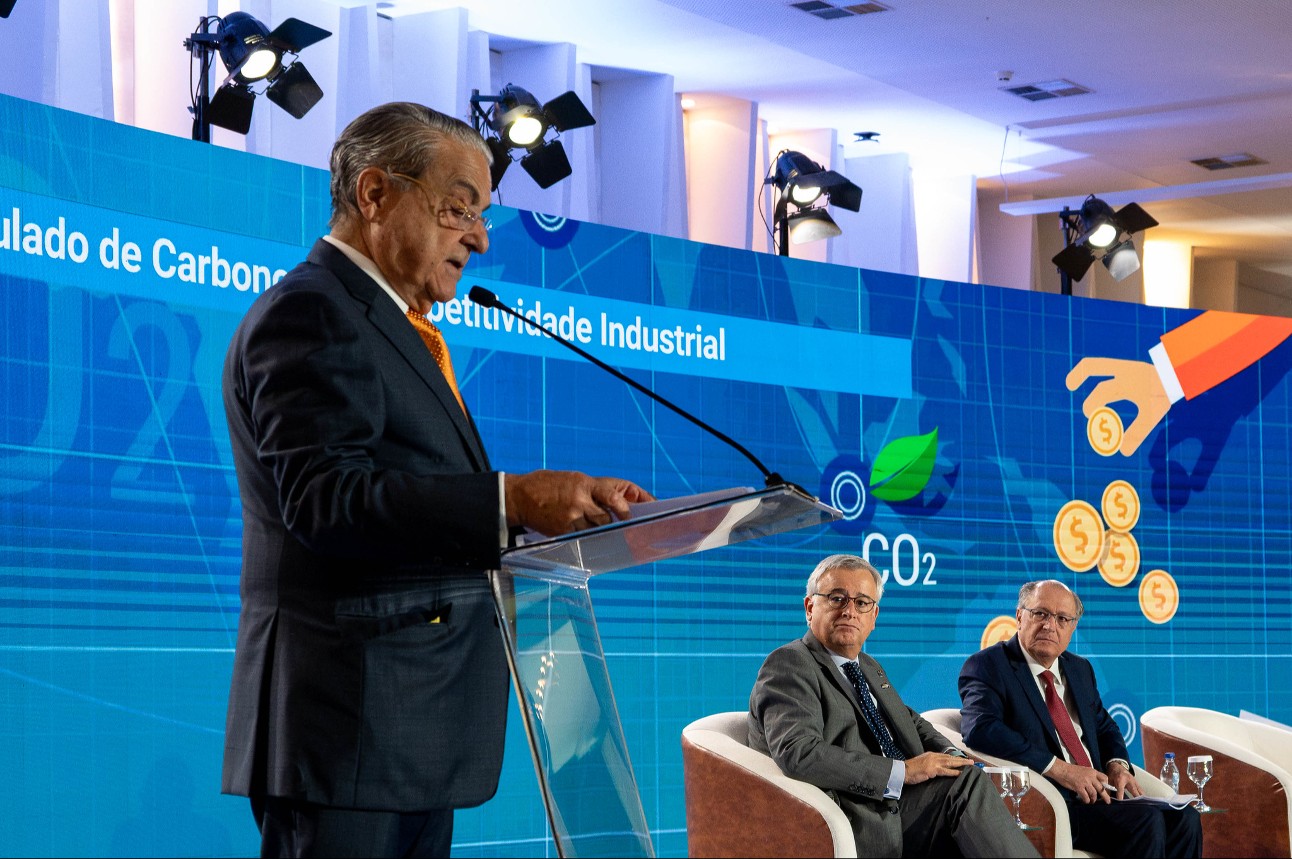The National Confederation of Industry presented to the federal government, this Tuesday (20), a proposal to regulate the pricing of greenhouse gas emissions

Acting president, Geraldo Alckmin, says that Brazil can only gain from carbon market regulation
The acting president and Minister of Development, Industry, Commerce and Services (MDIC), Geraldo Alckmin, said that Brazil may have gained 5% of Gross Domestic Product (GDP) with the regulated carbon market, which, according to him, would be equivalent to a gain of US$ 120 billion. Alckmin participated in the opening of the event Dialogue: The Regulated Carbon Market and Industrial Competitiveness , in which the industry disclosed a proposal to regulate the pricing of greenhouse gas emissions, with the presence of government representatives and diplomats from European Union countries .
The federal government and the CNI defend the market model from a cap and trade perspective . In this model, industries that emit less greenhouse gases will be able to sell the amount saved. Those that exceed the stipulated quota will be able to compensate by purchasing the difference in the regulated market. Thus, those who issue more acquire the credits of those who issue less.
“With the regulated carbon market, we will be able to make this compensation and this will stimulate new companies, new jobs, new opportunities, generate income and help in the fight against climate change”, said Alckmin.
The president of the CNI, Robson Braga de Andrade, defended that the pricing of greenhouse gas emissions be implemented in a “planned” way and carried out in an “appropriate way”, to stimulate technological development and the production of wealth in Brazil.
“With clear rules and efficient management, the regulated carbon market will also help increase legal certainty and business confidence. It will also be important to promote the competitiveness of companies, without increasing the tax burden”, added Robson Andrade.

Carbon market regulation model is in line with international experiences
The president of the CNI also mentioned the nations that already implement the regulated carbon model, among them: Mexico, United States, Canada, Japan, South Korea and the European Union (EU). The European Union Ambassador to Brazil, Ignacio Ybáñez, participated in the event and pointed out that Brazil and the EU will be “key partners” in the process of implementing the Brazilian pricing model and praised the proposal presented by the CNI:
“The Brazilian private sector, which holds the key to a successful green transition, with entrepreneurs operating in the global economy, you are best placed to seek a domestic carbon price that ensures a level playing field for all. In this regard, we warmly welcome the industry proposal for the carbon market launched by the CNI today.”
The first carbon trading system implemented in Europe emerged in 2005 and, according to Ignacio Ybáñez, since then, a 35% reduction in greenhouse gas emissions has been registered. The most polluting industries are present on the market, such as electricity producers, oil refineries, steel, cement, aviation companies in Europe and district heating.
“What is being sought is a carbon market that communicates with the international environment, that we have a connection with more mature and established markets abroad, added the executive manager of Environment and Sustainability at CNI, Davi Bomtepo.
Panels discuss challenges and opportunities
In addition to presenting the industry’s proposal, the CNI also promoted two panels to discuss the regulated emissions trading systems in the world and the Brazilian opportunities and challenges.
Moderated by the director of Mitigation and Adaptation Policies at the Ministry of the Environment , Aloisio Melo, and by the director of Institutional Relations at CNI, Mônica Messenberg, the conversations showed the importance of accelerating market regulation in Brazil.
“Let it be soon [the implementation of the carbon market]. The policy has its specific timing, but if there is one thing we would like to pass on, it is the urgency of this process”, said Suzano’s Corporate Relations manager, Leonardo Mercante.
The participants agreed that Brazil has the conditions to play a leading role in the decarbonization of industry in the world and that the regulated carbon market will be an important tool in this process, alongside stimuli for the energy transition and the promotion of the bioeconomy and circular economy.
By: Leticia Carvalho
From the Industry News Agency
Photos: Gilberto Sousa/CNI